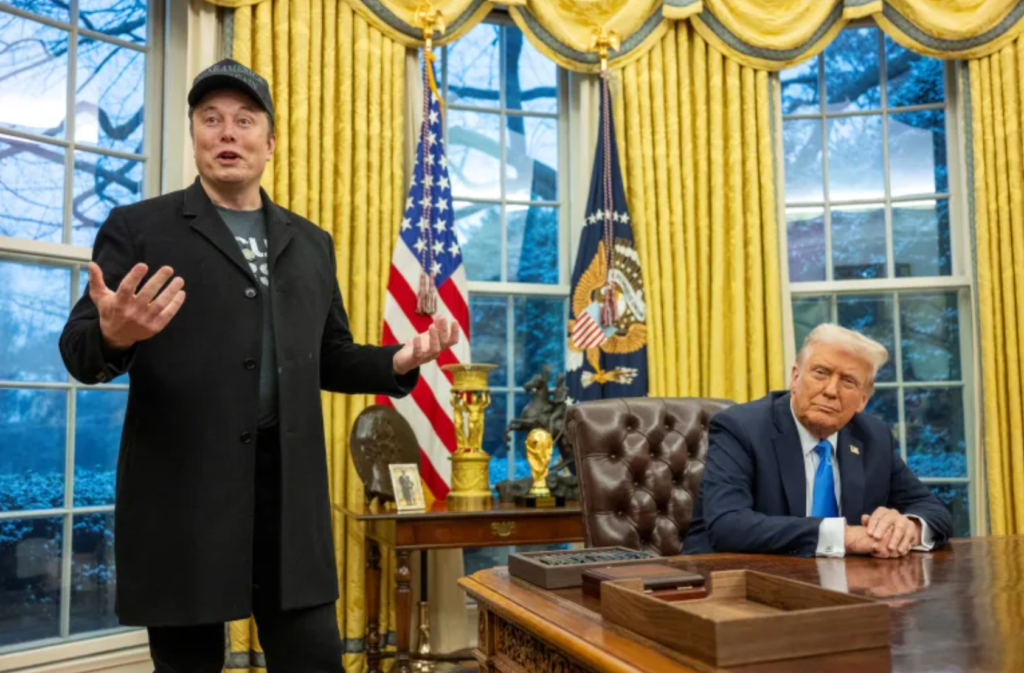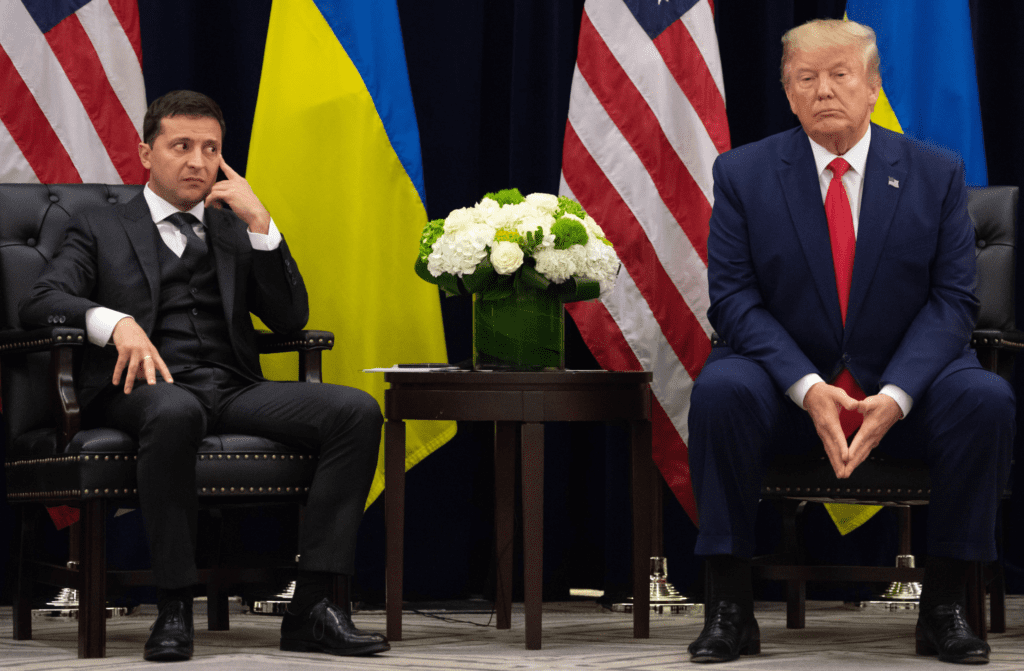Donald Trump has been the target of “selective and vindictive prosecution” throughout the 2024 campaign.
The most prominent case of this “arbitrary prosecution,” as Judge Aileen Cannon put it, is the classified documents case, of course.
On Thursday, Judge Cannon raised the many issues with former President Donald Trump being charged with violations of the Espionage Act and other U.S. statutes against mishandling of classified documents beginning with the day that he willfully and voluntarily stepped down from the presidency on January 20, 2021, while former Vice President Joe Biden, former Vice President Michael Pence, and former Secretary of State Hillary Clinton remain uncharged, despite lacking the legal coverage of the Presidential Records Act.
But that is not the only case of such selective prosecution, which is anathema to justice and equal treatment under the law. In late February, Judge Arthur Engoron issued a civil penalty against Donald Trump for $354 million, which was adjudicated without a jury of his peers. Furthermore, Judge Engoron slapped Trump with several restrictions against operating his businesses in the State of New York.
The major flaws with this ruling are extensive, but boil down to this: Firstly, there were no actual victims of Donald Trump’s allegedly inflated valuation of the assets he claimed in negotiations with willing lenders; Secondly, the practices that Donald Trump used in his lending contracts are almost universally used among prominent real estate developers.
There is also the E. Jean Carroll civil case against Donald Trump, where the plaintiff was awarded $83 million for liable despite a jury declining to find Trump guilty of rape. Carroll was unable to recall basic facts to substantiate her case, misstated key details such as the dress she allegedly wore at the time (which was not yet on the market), and her version of events closely paralleled a Law & Order television show storyline.
The State of New York even bizarrely changed the law to pave the way for E. Jean Carroll’s civil rape case. This is as “selective and vindictive” an abuse of the law as it gets.
After Judge Engoron’s ruling, she embarrassingly gushed on Maddow’s show that she wanted to take the MSNBC host shopping.
Rachel Maddow asks E. Jean Carroll what she's going to do with "Trump's money" to help "women's rights."
Carroll says she and Maddow will "go shopping, get completely new wardrobes, new shoes…Rachel, what do you want, penthouse?"
Her lawyer nervously says "that's a joke": pic.twitter.com/5LAx5xU5Uy
— Steve Krakauer (@SteveKrak) January 30, 2024
Then there is the Fulton County Georgia “racketeering” case against Donald Trump. There is no clear indication that Donald Trump wanted anyone in Georgia to violate the law, which would be the legal basis for charging co-defendants in a criminal racketeering conspiracy.
The Washington Post’s initial reporting on Donald Trump’s call to Georgia Secretary of State Brad Raffensperger to “find the votes” distorted the actual transcript of the call, which was illegally recorded and released without Trump’s knowledge since Georgia is a two-party consent state.
On Friday, Judge Scott McAfee declined to remove Fulton County D.A. Fani Willis from the case, after numerous documented ethical violations, opting instead that Willis fire and replace her lover and special prosecutor Nathan Wade. Prior to the ruling, he struck six counts against Trump and his associates for “Solicitation of Violation of Oath by Public Officer.”
“If Fulton County simply accepts the decision and moves forward, it should have very little impact,” Atlanta-based attorney Andrew Fleischman said. “Much of the same conduct is covered in the RICO count already, it doesn’t have a meaningful impact on punishment, and frankly, it was already really hard to prove that Donald Trump intended to cause elected officials to violate the constitution.”
It should be noted that Judge McAffee worked with Fani Willis as senior assistant district attorney in Fulton County and even made a political donation to her campaign.
Fani Willis had earlier filed charges against so-called “fake electors” in Georgia, despite her possession of exonerating evidence that their intentions were entirely lawful and in accordance with the United States Constitution.
In her indictment issued on August 14, Willis claimed that the Republican electors for Trump constituted an illicit “conspiracy” aimed at overturning Georgia’s 2020 election results.
Willis specifically contended that Shafer and other alternate electors “unlawfully falsely held themselves out” as Georgia’s “duly elected and qualified” presidential electors. She further asserted that these electors, with Smith’s assistance, deliberately sought to “mislead” figures such as then-Vice President Mike Pence and Georgia Secretary of State Brad Raffensberger “into believing that they actually were such officers.”
However, among the documents gathered during Willis’s lengthy investigation of Republicans was a transcript of a meeting that contradicted her allegations.
A transcript of the December 14, 2020, meeting of Georgia Republican electors, obtained by The Federalist, clearly reveals that the intent behind appointing alternate electors was not to impersonate public officials, as Willis claimed, but rather to legally preserve Trump’s challenge to the state’s election results. At the outset of the meeting, Shafer explicitly stated that he and his fellow Republicans were acting as “Republican nominees for Presidential Elector,” not as “duly elected and qualified” presidential electors.
“[President Trump] has filed a contest to the certified returns. That contest — is pending [and has] not been decided or even heard by any judge with the authority to hear it,” Shafer said. “And so in order to preserve his rights, it’s important that the Republican nominees for Presidential Elector meet here today and cast their votes.”
It should be noted that the Democratic Party has filed numerous election challenges since the 2000 presidential election between Al Gore and George W. Bush. Not a single Democrat has ever been charged in a criminal conspiracy to “overturn” the results of an election.
This could likewise be said about the 2020 election case being tried in Washington D.C. by partisan Judge Tanya Chutkan. Judge Chutkan has implicated Donald Trump as being guilty of alleged crimes without due process, sought to strip him of presidential immunity, approved “gag orders” against him despite his election candidacy, blocked transparency in the case by denying Trump’s legal team access to records necessary for his defense, and scheduled hearings for politically inopportune times (before other legal proceedings upended these plans).
This statement by Judge Chutkan in her landmark ruling denying Trump exec privilege protections from House Democrats J6 committee alone should be disqualifying.
There is no way she can objectively oversee Jack Smith's J6 case against Trump. pic.twitter.com/VDIbIQnyJ5
— Julie Kelly 🇺🇸 (@julie_kelly2) August 6, 2023
Then there is the matter of the New York “hush money” case. Federal prosecutors declined to bring charges against Donald Trump for years over the matter involving adult film actress Stephanie A. Gregory Clifford (aka Stormy Daniels).
However, Alvin Bragg seized on the case, particularly, after the Biden administration dispatched Justice department attorney Matthew Coangelo to “advise” the Southern District of New York’s legal team. One would be justified in believing this is a clear case of political collusion in the prosecution of a Biden campaign rival for purposes of election interference.
Alan Dershowitz, a prominent Harvard Law professor emeritus, said Friday that Manhattan District Attorney Alvin Bragg should be investigated for bringing this “made-up case” against former President Donald Trump.
In a Thursday legal filing, Bragg stated that he was willing to delay Trump’s trial by 30 days on charges stemming from an indictment acquired against Trump in March 2023 over a $130,000 payment to adult film star Stormy Daniels in 2016. During an interview on “Mornings with Maria,” Dershowitz referred to Bragg’s case as “the weakest possible.”
“That’s a made-up case. He should be investigated for bringing that case,” Dershowitz told host Maria Bartiromo. “Nobody in history has ever been charged with failing to disclose in a corporate form the fact he paid hush money. The reason you pay hush money is not to disclose it. Alexander Hamilton paid hush money.”
“Hush money” payments aren’t illegal. Even CNN knows this basic fact about Alvin Bragg’s New York case. Bragg is alleging Trump falsified records to cover up a “crime” — but still doesn’t know what crime that is.
“This is the first case in history anybody has ever been tried on this kind of made-up case, so it’s the weakest case of all, and now he is prepared to have a delay, but that case may get tried first, and it’s New York so there will be a conviction in Manhattan, you know, a jury in Manhattan will convict a ham sandwich if its name is Trump,” Dershowitz continued. “So I think there will be a conviction and, very likely, a reversal on appeal, but the reversal on appeal may not come until after the election.”
This may be the case with several of the “selective and vindictive” prosecutions against Donald Trump. The court rulings that are being rendered by partisan judges at the behest of politically motivated prosecutors may not be overturned until after the election.
In that case, it will be “mission accomplished,” because the damage will already have been done.
NOW READ:
Judge Cannon Takes Wrecking Ball to Trump Classified Docs Case Citing Robert Hur’s Report


